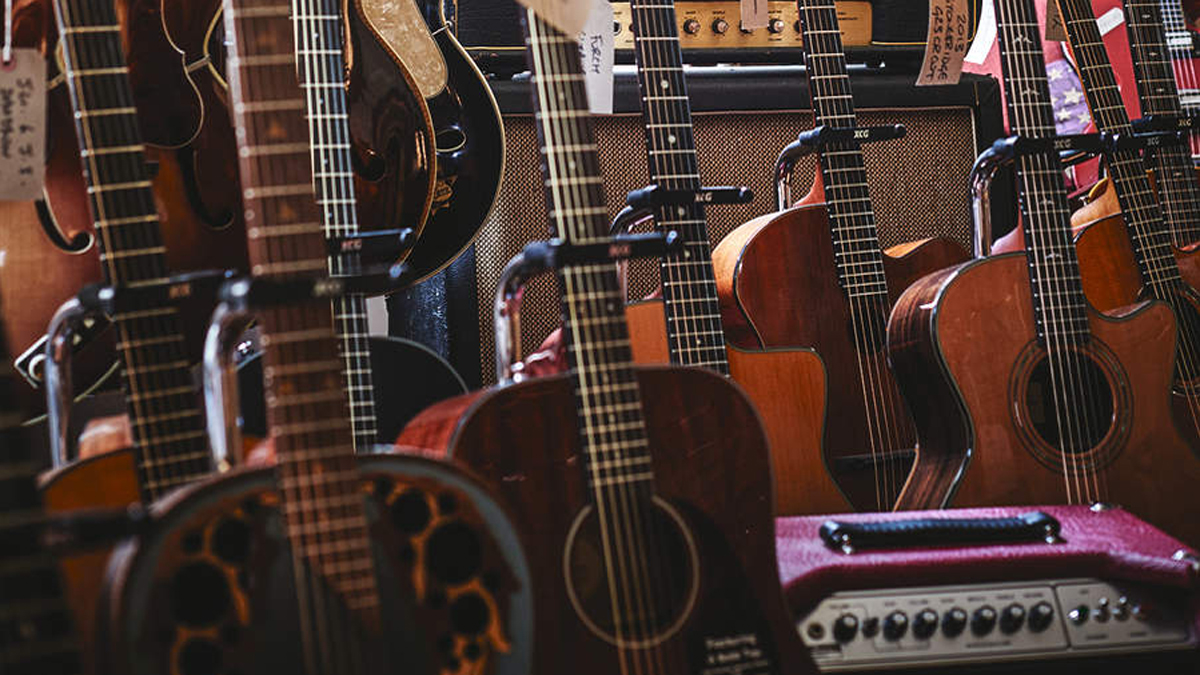
All the latest guitar news, interviews, lessons, reviews, deals and more, direct to your inbox!
You are now subscribed
Your newsletter sign-up was successful
It could be a precarious time for the guitar market. After almost two years of lockdown ushered in a new era of guitar – almost 16 million Americans picked up an electric guitar for the first time – it seems as though demand for six-strings has never been higher.
However, alongside this unprecedented demand is an emerging fear that the current cost of living crisis may hinder this trend in the UK. The combined impacts of Brexit and Covid, along with skyrocketing energy prices and climbing inflation – a figure that is set to rise above seven percent – have led to a significant drop in household disposable income.
That’s not all. It’s been well-documented that the guitar market is now plagued with supply chain issues – a challenge that Fender CEO Andy Mooney doesn’t expect to subside for the foreseeable future.
The warning signs are pointing towards what could be a particularly tough time for the guitar market – one that could see the resurgence of the guitar's popularity among consumers becoming waylaid by the current crisis. With this considered, how can we expect the guitar industry to cope, and are gear sales about to drop off a cliff?

Well, according to Lee Anderton of leading UK retailer Andertons, such concerns may thankfully be misplaced. In fact, he expects guitar and gear sales to remain relatively stable throughout the coming months, and predicts that only larger ticket items will be hit.
“In my experience, the guitar market has always fared pretty well during times of economic downturn,” Anderton commented. “Typically, larger ticket items like cars and holidays are the things that people stop buying, and consumers look for lower-value purchases that will cheer them up – lots of guitar-related things fall into that bracket.”
Logical thinking would reason that a tighter budget would mean less indulgence: fewer people can afford that brand-new overdrive pedal, or that acoustic guitar they’ve always wanted.
All the latest guitar news, interviews, lessons, reviews, deals and more, direct to your inbox!
Nevertheless, as Anderton puts it, “retail therapy” is very much a thing, and as long as there are cheap-but-great guitars available – stock issues permitted, granted – there will always be those open to browsing for instruments that will give them a much-needed pick-me-up.

“2022 isn’t a recession,” Anderton continues, “but the cost of living is going up faster than wages, so inevitably disposable income will get squeezed. I still think people always love a bit of retail therapy and if guitars make you happy, then I’m pretty sure people will still indulge.”
And, while Anderton notes he’s “certainly not advocating buying guitars over food or rent”, his comments make sense. Nowadays, there are guitars, pedals and amps at every price point. The high-end Gibsons, Gretches and Fenders may still be attainable for a percentage of the population, but it’s important to remember the breadth of brands that are out there.
Harley Benton immediately springs to mind: its latest offering, the sleek, metal-friendly ST-20HSS SBK weighs in at an almost-unbelievable £109. If the current cost of living crisis does bleed into the guitar market, it could result in an increase in sales of lower-cost items such as cheap guitars and, of course, pedals.
This willingness to spend isn’t exclusive to the primary market, either. If anything, the crisis may only encourage potential buyers to get creative with their hunt, and convince them to consult secondhand sellers.
While Reverb director Jim Tuerk admits “there’s never been a better time to sell used or vintage gear”, he also notes the secondhand market is ripe with bargains, and may therefore be a destination for those whose “new guitar fund” has been stretched to finance other necessities.
Of course, there could still be a fall in sales, and in some cases, prospective buyers will have to sacrifice a new piece of gear for more pressing purchases. However – for now, at least – the guitar market seems to be safe, and ready to weather the coming storm.

Matt is the GuitarWorld.com News Editor, and has been writing and editing for the site for five years. He has a Masters in the guitar, a degree in history, and has spent the last 19 years playing everything from blues and jazz to indie and pop. During his GW career, he’s interviewed Peter Frampton, Zakk Wylde, Tosin Abasi, Matteo Mancuso and more, and has profiled the CEOs of Guitar Center and Fender.
When he’s not combining his passion for writing and music during his day job, Matt performs with indie rock duo Esme Emerson, and has previously opened for the likes of Ed Sheeran, Keane, Japanese House and Good Neighbours.
